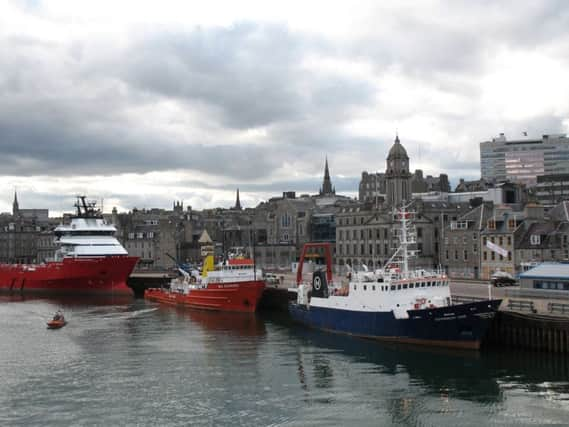Document shows Scots sailed to North America earlier than thought


Researcher Thomas Brochard discovered the William of Aberdeen vessel sailed across the Atlantic in 1596 – a voyage that has remained a mystery for the last 422 years.
Previously the earliest documented Scottish ship to make the trip was a Dundee-built vessel named Gift Of God, which sailed from Portugal in 1600.
Advertisement
Hide AdBut now the William has been identified as the first Scottish ship to cross the Atlantic to North America, carrying a crew of Caledonian traders to the New World.
Mr Brochard, an Honorary Research Fellow at Aberdeen University, uncovered evidence the William made the trip while reading a late 16th-century council register.
In the handwritten ledger, he noticed an entry documenting the ship William of Aberdeen having made a voyage to “new fund land” (Newfoundland) in 1596.
As well as the ship’s name, he uncovered a wealth of information of the men who owned her and those who sailed on her four-year voyage across the Atlantic.
Mr Brochard said: “I was trawling through the records when my eyes chanced upon the words ‘new fund land’.
“This turned out to be an astonishing discovery.
“I’m sure other gems like this are waiting to be discovered in the burgh records, which are an incredibly rich resource for historians and fully deserve their Unesco designation as nationally important documentary heritage.”
Advertisement
Hide AdThe entry, in which the ship is mentioned as having crossed the Atlantic, relates primarily to debts incurred by Patrick Donaldson, a burgess of the town, and his fellow burgess William Findlay, the master and skipper of the William.
The records reveal both Patrick and William were involved in the fitting out and freighting of the vessel between it leaving Aberdeen in July 1596 and its return in 1600.
Advertisement
Hide AdThe other partners and owners in the Newfoundland venture are given as Archibald Smith and burgess Alexander Kempt, while a Colin Campbell is noted as being on board the vessel, as was a carpenter by the name of John.
In 1596, when the William made her long voyage, Scottish interests in North America were still very much in their infancy.
The trading contacts the ship would have been making helped develop the settlements, which became home to many in the Scottish diaspora during the 17th, 18th and 19th centuries.
City archivist Phil Astley said: “Quirky and unusual stories quite often come to light when reading through original records. It’s part of the fun of working in an archive.
“However, it’s rare to have a find as historically significant as that made by Thomas.
“It is even more remarkable that we know the names of several crew members.”
Advertisement
Hide AdThe exact nature of the cargo on the outward voyage is not known, although from later entries it becomes clear the William returned to Aberdeen via the port of Aveiro, Portugal.
It is noted it picked up a cargo of salt, probably destined to be used for preserving fish and meat.
Advertisement
Hide AdRemarkably, several of the Portugal to Aberdeen crew are also named – John Barclay, Alexander Currie, David Morton, David Easton, William Brown, Robert Fleming, Paul Fraser, William Young, and John Dow.
It is possible some may have been crew members on the Newfoundland voyage.
They had paid money to Patrick Donaldson, one of the owners and the ship’s clerk, to buy their share of the ship’s cargo of salt.
On arrival in Aberdeen, the owners refused to pay the crew their whole share as the cargo was spoiled due to a leak in the ship’s hold.
The dispute then came before the Burgh Court and was recorded in the council register.
After that, the ship’s fate and that of its crew become obscure once more as it drops out of the record books.
Advertisement
Hide AdLord Provost of Aberdeen Barney Crockett said: “Aberdeen is a proud maritime city, and this is a hugely important historical find.
“It clearly demonstrates Aberdeen was at the forefront of Scottish trade to the New World as far back as the 16th century.”
